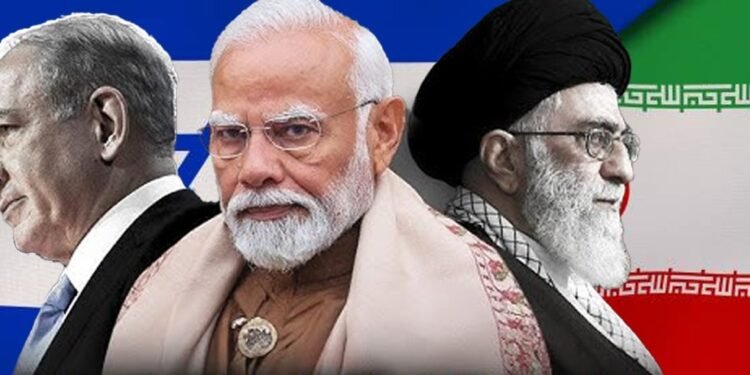
by Husneara Choudhury
India has long positioned itself as a beacon of democracy, a champion of humanitarian values, and a rising moral power on the global stage. Yet its silence in the face of Israel’s recent air and drone strikes on Iran raises serious questions about the country’s foreign policy priorities—and its moral compass.
While several nations openly condemned the Israeli aggression, India chose strategic ambiguity, hiding behind a curtain of “balance” and “non-alignment.” But is neutrality in the face of violence truly neutral?
Strategic Interests Over Principles?
India’s reluctance to criticize Israel can be traced to a complex web of national interests:
1. Defense and Technology Ties with Israel: India is a major buyer of Israeli defense equipment, including drones, radar systems, and surveillance tech. The Indo-Israeli defense relationship is deep and growing—militarily and politically.
2. Energy and Connectivity with Iran: Iran has historically been a key supplier of crude oil to India. Moreover, India’s ambitious Chabahar Port project in Iran is critical for bypassing Pakistan and accessing Afghanistan and Central Asia.
3. Indian Diaspora in the Middle East: Millions of Indian citizens live and work across the Gulf region. Maintaining a careful diplomatic balance helps avoid alienating either side in this geopolitically sensitive region.
Morality vs. Diplomacy
But the larger question is this: Can a nation that aspires to global leadership afford to remain silent in the face of aggression?
India claims to be a voice of the Global South, a model democracy, and a defender of international law. If so, why doesn’t it condemn clear violations of another nation’s sovereignty—especially when civilian lives are at stake?
Strategic silence might serve short-term interests, but moral leadership demands clarity, even when it’s inconvenient.
Is Silence a Form of Approval?
When a nuclear-armed state strikes inside another sovereign nation, it isn’t just a bilateral issue—it’s a threat to regional and global stability.
By not speaking out, India risks sending a dangerous message:
that great powers can act with impunity, and democracies will look the other way when allies commit acts of aggression.
Conclusion: Can India Be a World Leader Without a Moral Voice?
India must recognize that global leadership comes with ethical responsibility.
Remaining silent in times of injustice weakens the very democratic values India claims to uphold.
If India truly wants to be Vishwaguru—a moral and cultural guide to the world—it must find its voice, not just its interests.

























